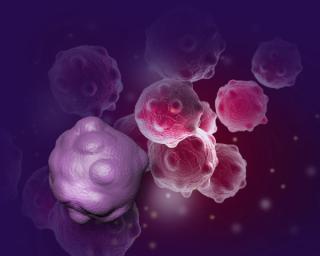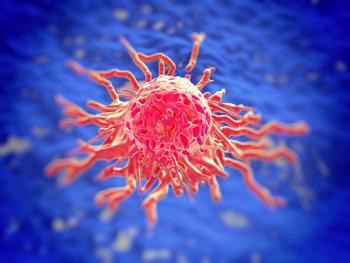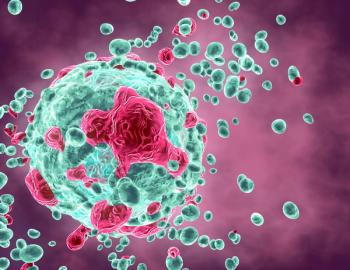
Oncology
Latest News
Latest Videos
CME Content
More News

Stéphane Champiat, MD, PhD, spoke about the reasoning behind using the IL-2/IL-15 superagonist SOT101 and where the research is heading for patients with solid tumors.

Bevacizumab-maly was approved by the FDA across numerous cancer indications, becoming the third FDA-approved bevacizumab biosimilar.

Matthew Krebs, MB, PhD spoke about the reasoning for the phase 1 PALOMA trial in patients with solid tumors who received a subcutaneous formulation of amivantamab.

Results of the phase 2 AURELIO-03 trial show SOT101 plus PD-1 inhibition induced responses in patients with advanced solid tumors.

Stéphane Champiat, MD, PhD, spoke about the results of the AURELIO-03 trial with SOT101 and pembrolizumab for patients with advanced solid tumors.

Patients with advanced solid tumors experienced an increase in dose-dependent T-cell proliferation following treatment with MEDI5752.

The phase 1b/2 KontRASt-01 trial demonstrated a positive safety profile of JDQ443 for patients with KRAS G12C-mutant solid tumors.

Patients with solid malignancies may benefit from treatment with next-generation PARP inhibitor AZD5305, according to findings from the phase 1/2a PETRA study.

Acceptable efficacy and safety were elicited in patients with advanced solid tumors and high tumor mutational burden detectable in both blood and tissue samples with nivolumab/ipilimumab therapy.

Data regarding different dosing strategies of elimusertib for advanced solid tumors with ATM alterations and other DNA damage repair gene defects display early efficacy of the therapy.

Based on results from the EPIK-P1 trial, the FDA has granted accelerated approval to alpelisib for PIK3CA-related overgrowth spectrum.

Shilpa Gupta, MD, and Jason R. Brown, MD, PhD, discuss a recently published paper by Grivas et al. (2019) on the use of checkpoint inhibitors for maintenance therapy to prolong the benefits of frontline therapy while minimizing toxicity in solid tumors.

Patients with cancer are at a higher risk for adverse financial effects compared with those who have not been diagnosed.

Candice Roth, MSN, RN, CENP, spoke about how the electronic treatment pathways have evolved over time.

Maurie Markman, MD, sits down with CancerNetwork® to discuss proposed legislation that would put a time limit on how long drugs with an accelerated approval can stay on the market, and how that may negatively impact patients with cancer.

A phase 1 study of davoceticept and pembrolizumab for advanced malignancies received a partial clinical hold from the FDA following a patient death.

In recognition of Black History Month, key opinion leaders from the community oncology space and beyond speak to how organizations are working to diversify clinical cancer research and combat outcome disparities.

Women undergoing treatment with immunotherapy, targeted therapy, or chemotherapy in cancer clinical trials were at a significantly increased risk of severe adverse effects compared with men.

Findings from a systematic review that evaluated bevacizumab, trastuzumab, and rituximab vs respective biosimilars highlighted little difference in outcomes between treatment options.

The FDA designated the FoundationOne CDx assay as a companion diagnostic for identifying tumors that are microsatellite instability–high and may benefit from pembrolizumab.

Conflicts of interest for junior faculty members were evaluated at top cancer centers by Suneel D. Kamath, MD, et al. to determine how financial conflicts of interest correlated with measures of academic career productivity.

The FoundationOne Tracker ctDNA monitoring assay was given breakthrough device designation by the FDA for use in early-stage cancer after curative therapy.

Cancer misinformation may be more prevalent among residents in rural vs urban areas, study finds.

A combination of sitting for longer periods a day and a lack of physical activity resulted in a higher risk of death than those who partook in physical activity.

Safety findings from the phase 1 ASPEN-01 trial support the use of evorpacept with or without pembrolizumab or trastuzumab for patients with advanced solid tumors.













































